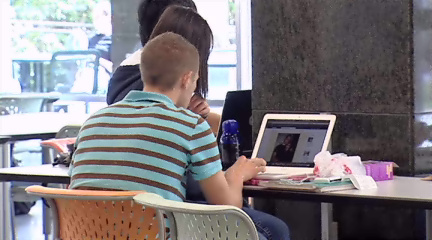Computers and Wi-Fi are a part of daily life.
A new study by Norton Symantec puts Austin in the top 10 most venerable citieswhen it comes to cyber crime. That's based on the number of Wi-Fi hot spots, on-line shopping, cyber attacks and malware. Hackers are looking for anything with monetary value.
I probably sayI get on 10 times a day, maybe, said Christina Norton, Wi-Fi user.
Brian Milliron is the CEO of ERC Security Services.
Full identity with social security number, address -- that sort of thing. That can go for about $30 on the black market. Just a credit card number without any other information, that's only about $5 worth, said Milliron.
Milliron saysit's important to know your security options and what to look for when something goes wrong.
Your standard security system is like a lock on your front door. It's not going to stop everyone - but it'll stop most of them, he said.
He says three key things will help keep you safe.
First, pay attention to those security alertsliked expired anti-virusor a disabled firewall.
Second, get a flash blocker -- a system to block those moving ads -- and you'll reduce your risk by about 50 percent.
Finally, consider having a dedicated computer -- without Wi-Fi -- for on-line banking and brokerage services.
People would not want to let their kids use their work computer that they do their online banking on because kids are just going to go all over the Internet and get into all sorts of trouble and download things. It tends to create a mess and a lot of security holes, he said.
No system is perfect. Instead, it's about minimizing your risk.
There's always a chance. I'm pretty careful with my computer and my electronics trying to keep track of them, soI guess that's just kind of the risk involved, said David Sukiennik, Wi-Fi user.
Experts say it's possible your computer has a virus or malware and you don't even know it. You can either take it to a professional and get it checked out, or visit secunia.comfor a free scan.


